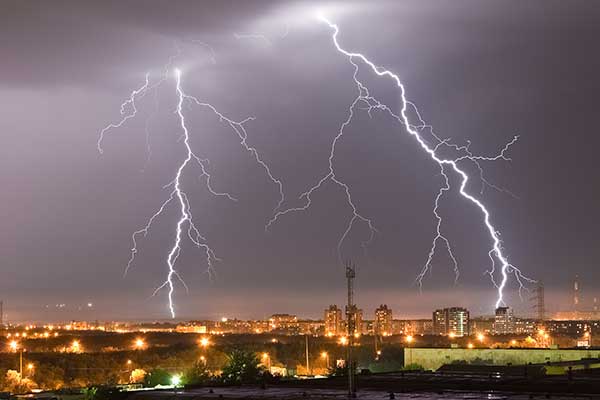Guest article by Robert Hall
Significant rises in fuel and food bills across the board in the UK will increasingly bite over the coming year and particularly if there were to be a long, harsh winter. The important question that arises from the cost-of-living crisis is whether pressures could see current industrial unrest over pay escalate into wider social disobedience and even civil disorder. The momentum of campaigns like ‘Don’t Pay UK’ and ‘Enough is Enough’ is one indicator. If a large swathe of the population cannot afford to heat its homes or to feed itself, or both, then wider civil unrest may not be far around the corner.
A legacy of unrest
>The UK has been here before in various guises even in the past half-century. With the oil embargo of 1973, when the oil price increased by 300% over six months, a three-day week was introduced as inflation topped 16%. Coupled with a series of strikes by coal miners and rail workers over the winter of 1973-74, the oil shock became a major factor in the defeat of Heath’s government in the 1974 general election.
The so-called ‘Winter of Discontent’ of 1978-79 was characterised by widespread strikes by private companies and later public-sector trade unions demanding pay increases of up to 17%, well above the 5% government ceiling. The unrest led to the fall of the Callaghan government.
The poll tax riots of 1990 were a turning point for the Thatcher government. During the early months of 1990, over 6,000 anti-poll tax actions were held nationwide, with demonstrations in cities around England and Wales drawing together thousands of protestors.
The riots of 2011 following the police shooting of Mark Duggan in Tottenham quickly spread across the country. They were mainly focused in London where property losses were estimated at £100 million. The unrest challenged the Big Society idea of the Cameron government.
It was the death of Mark Duggan that was the spark that ignited the fire back then. Often, the trigger for civil unrest unmasks the underlying socio-economic causes. This can be seen in other situations like the self-immolation of Mohamed Bouazizi (Tunisia, 2010) which set off the Arab Spring or the death of Mahsa Amini (Iran, 2022) which threatens the regime there.
Warning signs
The UK is certainly not alone in experiencing societal stresses. The UN Secretary-General said in March 2022 that the destabilising potential of disrupted supply chains and surging commodity prices caused by the conflict in Ukraine is ‘planting the seeds for political instability and unrest around the globe.’
One risk consulting firm (Verisk Maplecroft) sees a rise in civil unrest as ‘unprecedented’ in middle-income countries and believes 120 countries are likely to see an increase in protests by late 2022 resulting in, for example, a higher frequency of unrest and more damage to infrastructure and buildings. Meanwhile, Marsh’s latest World Risk Review shows an increase in 97 countries in the strikes, riots and civil commotion category between January and September 2022.
According to the head of crisis management at another risk firm (Allianz), ‘civil unrest increasingly represents a more critical exposure for many companies than terrorism’ and ‘Incidents of social unrest are unlikely to abate any time soon, given the aftershocks of COVID-19, the cost-of-living crisis, and the ideological shifts that continue to divide societies around the world.’
What business can do
The advice from Allianz is that organisations should view current events as a catalyst for evaluating best practices and policies, ‘including preparing office locations and employees for potential civil unrest’. Routine risk assessments and resilience planning should be standard responses, and businesses need to be alert to the indicators and designate clear pathways for de-escalation and response which ‘anticipate and avert the potential for personnel to be injured and/or damage to business and personal property’.
Incidents of civil unrest in Chile and South Africa over the last few years have challenged the Political Violence insurance market. The advice from that quarter is that companies should consider implementing measures to identify, prepare, warn, and act.
On the broader front, business needs to work with other sectors (governments, public, charitable, voluntary, non-governmental, trade unions, etc.) to mount a co-ordinated and combined response to the socio-economic challenges. The Edelman Trust Barometer 2022 talks of ‘Societal leadership now [being] the core function of business’, with the Chairman of Tesco publicly saying social engagement is the ‘moral thing to do’.
Acting together it may be possible to create a ‘whole-of-society’ approach to national resilience. If this doesn’t happen, and leadership and trust deficits arise in both the public and private sectors, it ‘could rupture the ties that bind a democratic society together, with potentially dangerous consequences’ says the former CEO of BP. A weakening of the social contract, unless halted, will make the task of decision makers that much harder in the face of mounting domestic pressures, not just over energy.
If a large swathe of the population cannot afford to heat its homes or to feed itself, or both, then civil commotion may not be far around the corner. If one uses the terrorism threat level of ‘Substantial’ as a comparator then the prospect could be considered ‘likely’. As a result, societal resilience may be tested once again. We need to pay attention to ways of strengthening it. Weakened societal resilience can affect national security. President Putin, and others, may readily take advantage.
Robert Hall is an independent consultant and former Executive Director of Resilience First. This is an edited version of an article that appears in the October copy of Intersec magazine. His book ‘Building Resilient Futures’ will be published by Austin Macauley Publishers Ltd in early 2023.



